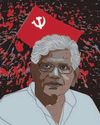
SHIVANI (name changed) from Delhi was allegedly raped by a male acquaintance in 2012. She was purportedly given intoxicant-laced tea by the man, after which she passed out and was sexually assaulted. He threatened to make a video of the crime public if she spoke about it. However, Shivani, now 28, approached the police and a case was registered. It was assigned to a fast-track court (FTC) and the charge-sheet was filed in 2013. However, recording of evidence started only in 2017 and was listed for final arguments in early 2019. The wait for a judgment continues. The case highlights the irony of fast-track courts—set up to speed up the disposal of cases, but failing to provide timely justice.
Statistics show that these courts take as long as ordinary courts, if not longer, to dispose of cases. For instance, nearly 34 per cent of the cases sent to fast-track courts in Bihar took more than 10 years to clear; in Telangana, 12 per cent of the cases went on for more than a decade. In the same duration, the lower judiciary as a whole cleared 48.75 per cent cases.
Fast-track courts are also burdened with substantial pendency. According to figures provided by the Union law and justice ministry in Parliament, as of March 2019, the 581 fast-track courts that were then operational had a sizeable pendency of over 5.9 lakh cases. Uttar Pradesh, the most populous state, had over 4.25 lakh cases pending even after the state’s 206 fast-track courts disposed of 4.56 lakh cases from 2016 to 2018.
As on December 31, 2019, 828 fasttrack courts were functional. They have been set up to try various kinds of cases, primarily those relating to crimes against women and children, and also criminal cases against MPs and MLAs, mob lynchings, riots, and atrocities against scheduled castes and scheduled tribes.
This story is from the {{IssueName}} edition of {{MagazineName}}.
Start your 7-day Magzter GOLD free trial to access thousands of curated premium stories, and 9,000+ magazines and newspapers.
Already a subscriber ? Sign In
This story is from the {{IssueName}} edition of {{MagazineName}}.
Start your 7-day Magzter GOLD free trial to access thousands of curated premium stories, and 9,000+ magazines and newspapers.
Already a subscriber? Sign In

Themes Of Choice
As Savvy Investors Seek New Avenues, Thematic Mutual Funds Are Gaining Popularity

A golden girl
One of India's most formidable beauties passed away earlier this month. The odd thing is she would absolutely hate this obituary; she hated being written about and avoided publicity for all of her nine decades. Indira Aswani was 93 when she died. But anyone who encountered her, even briefly, was in such awe of her grace and poise, and one could not but remember her forever.

The interest in wine is growing delightfully in India
The renowned British wine writer and television presenter Jancis Robinson, 74, recently came to Delhi and Mumbai to reacquaint herself with India's wine industry. This was the Robinson's fourth visit to India; the last one was seven years ago. On this trip, Robinson and her husband, restaurateur Nicholas Lander, were hosted by the Taj Hotels and Sonal Holland, India's only Master of Wine.

United in the states
Indian-Americans coming together under the Democratic umbrella could get Harris over the line in key battlegrounds

COVER DRIVE
Usage-driven motor insurance policies offer several benefits

GDP as the only measure of progress is illogical
Dasho Karma Ura, one of the world's leading happiness experts, has guided Bhutan's unique gross national happiness (GNH) project. He uses empirical data to show that money cannot buy happiness in all circumstances, rather it is family and health that have the strongest positive effect on happiness. Excerpts from an interview:

India is not a controlling big brother
Prime Minister Tshering Tobgay considers India a benevolent elder sibling as the \"big brotherly attitude\" is happily missing from bilateral ties. He thinks the relationship shared by the two countries has become a model of friendship not just for the region, but for the entire world. \"India's attitude is definitely not of a big brother who is controlling and does not allow the little brother to blossom and grow,\" says Tobgay in an exclusive interview with THE WEEK.

Comrade with no foes
Lal Salaam, Comrade Yechury-you were quite a guy!

Pinning down saffron
In her first political bout, Vinesh Phogat rides on the anti-BJP sentiment across Haryana

MAKE IN MANIPUR
Home-made rockets and weapons from across the border are escalating the conflict